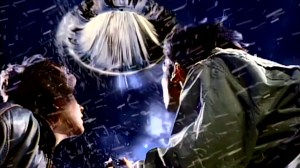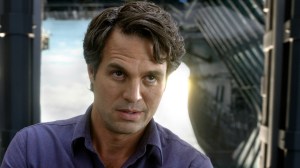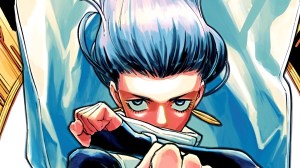Rick and Morty used to dwell in the “one and done” style of storytelling absent from most television shows nowadays. But the series began embracing serialized tropes after the second season finale, carrying that through with Evil Morty’s takeover of the Citadel of Ricks in “The Ricklantis Mixup.”
Videos by ComicBook.com
That doesn’t mean there is a thoroughly plotted storyline in mind for the show moving forward, according to co-creator Dan Harmon.
While speaking with EW about the third season’s abrupt ending, Harmon revealed the intention for the series is to keep every possibility on the table until the last second.
“We try to keep that to a minimum, if not zero,” said Harmon. “People are always disappointed to hear that because part of the culture of television — particularly binge-worthy obsessive serialized television — is this idea that there’s a larger truth unfolding and you can decode it and figure it out. I don’t want people to be upset to know that that’s what we’re doing too.”
That doesn’t mean they do not have ideas for the show’s direction in the future, but nothing is set in stone until it actually happens on the screen. And even then, it could be suspect.
“The way we see it, until something [is revealed in the show], it’s just one of a million possibilities,” Harmon said.
Don’t Out-plan The Audience

But Rick and Morty has a slight conundrum with its immense popularity and countless YouTube theories about what it all means, and Harmon is aware of those expectations.
“Our viewers are in the millions and they’re able to analyze the show even better than people who are paid to do so for nine hours a day,” Harmon said. “I don’t consider it my job to outthink and out-plan the audience.
“I’ve seen examples in television of [showrunners] trying to keep ahead of the audience and blow their minds with a finale that fans already decoded in episode 1.”
Without naming the shows directly, mystery plots from Westworld and Mr. Robot spring to mind, and Harmon doesn’t believe Rick and Morty will fall into those same trappings.
“Maybe some [writers] can do that, maybe that ups the ante for a new breed of chessmaster, but we still consider Rick and Morty a largely modular timeless show and you can pick up and watch any episode and that crack rock will get you just as high as any other crack rock. Unlike a truly serialized show like Game of Thrones, there’s a backbone to the show where it’s Rick and Morty going on adventures and it’s fun, like Doctor Who,” Harmon said.
“That’s life, brother.”

Harmon added that the show doesn’t want to plan too far ahead so they’re painted into a corner.
The interviewer wondered what the overall point to the show is, given that it balances ridiculous comedy with intense character-driven moments of development. When asked if there was permanent growth or consequences for the characters, Harmon had a poignant response.
“This is going to be the most pretentious answer, but I mean it with the smirk I’m delivering it with: You just described life, brother,” Harmon said. “And I prefer it that way because [the show] has the maximum shelf life and the minimum shark-jumping possibility if you just commit to that fact — which is that sometimes you can’t tell if your best friend really turned a new leaf or he’s just a serial leaf-turner.”
Modern shows tend to push characters down a path and show how they grow after certain events, and viewers have since been conditioned to expect and anticipate those moments. But real life isn’t like that.
“You don’t know among the real people of your world when their ‘story’ has changed, when they’re really growing, or just engaged in some new cycle or habit. It makes me happy to hear a relatively new viewer like yourself is confused about whether there’s real growth happening,” Harmon said.
The season finale of Rick and Morty airs this Sunday on Adult Swim.









